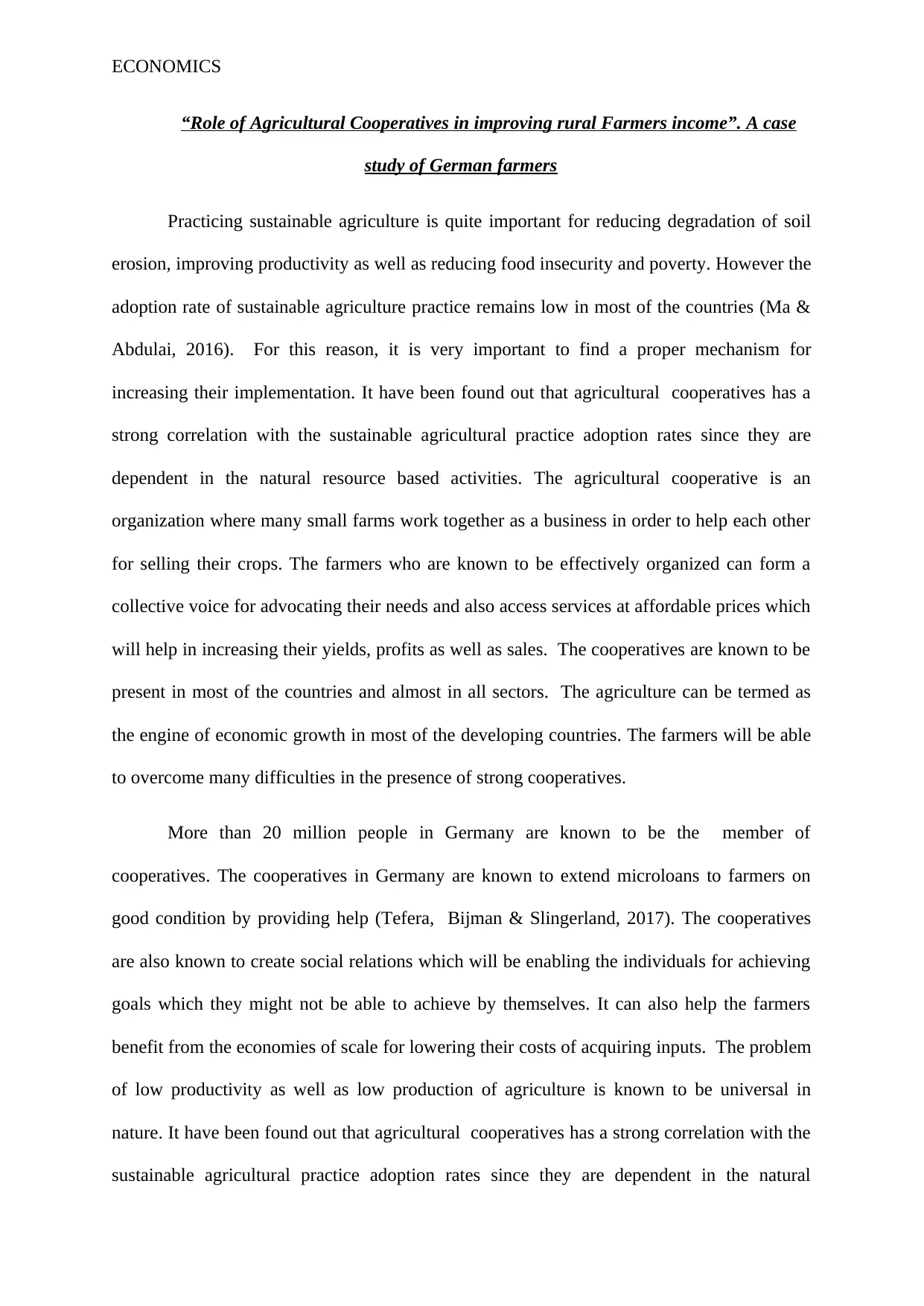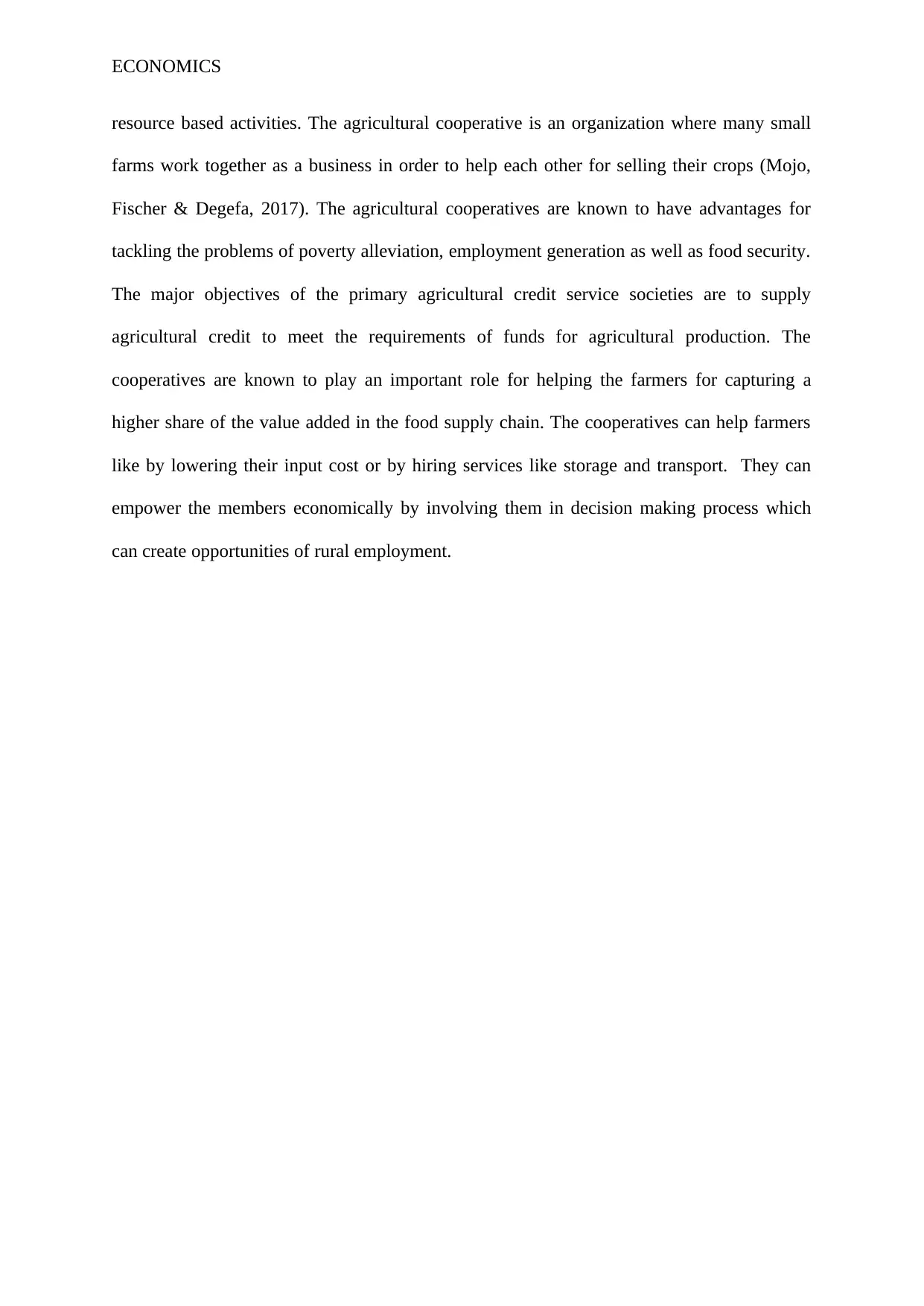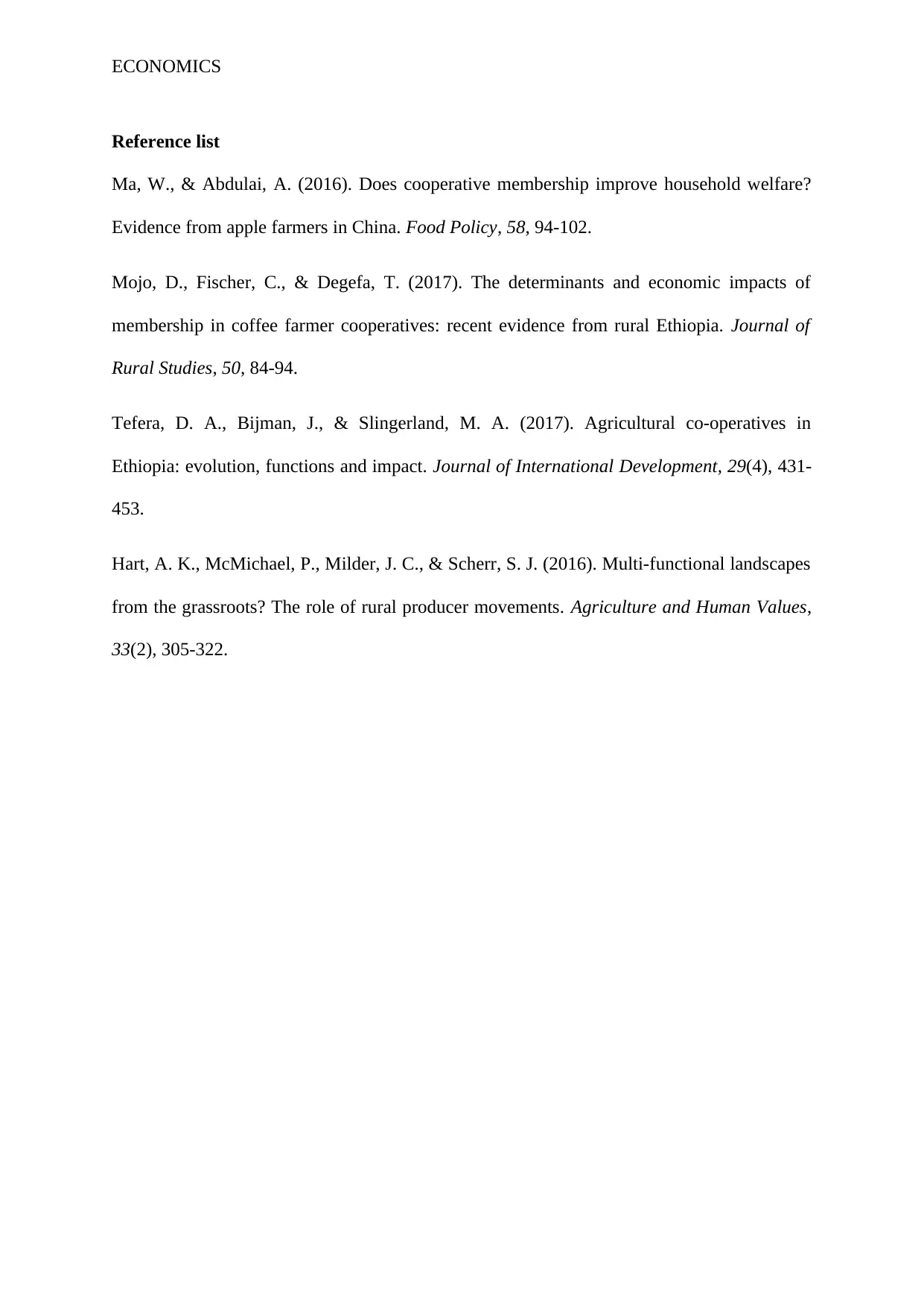Analyzing Agricultural Cooperatives: A German Economics Case Study
VerifiedAdded on 2023/03/30
|4
|611
|448
Case Study
AI Summary
This case study examines the role of agricultural cooperatives in improving the income of rural farmers, specifically focusing on the German context. The study highlights the importance of sustainable agricultural practices in reducing soil degradation, improving productivity, and combating food insecurity and poverty. It explores how agricultural cooperatives facilitate the adoption of sustainable practices by providing a collective voice for farmers, enabling access to affordable services, and creating economies of scale. The analysis emphasizes the benefits of cooperatives in extending microloans, fostering social relations, lowering input costs, and empowering members through decision-making processes. The study references several academic papers to support its findings and provides insights into how cooperatives can play a crucial role in poverty alleviation, employment generation, and food security within the agricultural sector. The case study underscores the advantages of cooperatives in helping farmers capture a larger share of the value added in the food supply chain, ultimately improving their economic outcomes.
1 out of 4











![[object Object]](/_next/static/media/star-bottom.7253800d.svg)